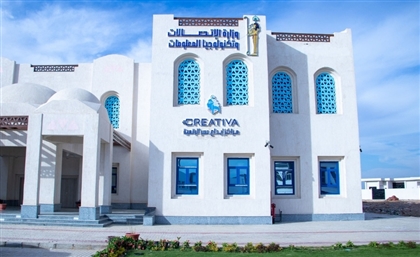What are Investors Looking for When Investing in AI Startups?
With AI expected to contribute $320 billion to companies in the Middle East by 2030, these are what investors hope to see.

AI has been garnering global attention ever since ChatGPT made its debut in 2022. The technology has not only changed the way people and businesses work, but has influenced VC interest in generative AI and AI-related startups.
In 2023, investors poured almost $50 billion in AI startups, according to data by Crunchbase. While VC funding may have slowed down last year, and much of this year, due to macroeconomic challenges, investors are still paying close attention to AI.
“AI has been around for a long period of time, but it’s just now it has become more of a buzzword,” Simon Sharp, Partner at Global Ventures, tells StartupScene. “More companies are considering the impact it has on their market, their business model, and are making sure they’re starting to incorporate elements of it.”
With AI expected to contribute $320 billion to companies in the Middle East by 2030, according to a report by PwC, companies are starting to use it to automate some of their business functions, including marketing, operations, and HR. It is predicted that adopting AI can yield a 10x return on investment, according to the same report, making it an appealing sector for investors.
WHAT ARE AI STARTUPS
Before getting into what investors are looking for in AI startups, it is important to distinguish between the different types of AI startups: those that use AI for chatbots and large language models (LLMs), and others that include it in their business model to make their operations more efficient and cost effective.
“We’ve seen a lot of portfolio companies, and a lot of investments where startups are using potentially off the shelf models to reinforce elements of their business,” Sharp says. “Whether that’s a fintech on the fraud detection or credit scoring side, or edtech in terms of personalized content, or a cyber security company utilizing the data that it’s got through a security perspective.”
While there is keen interest for both types of startups, Sharp sees a unique opportunity for Arabic language models. Arabic is the native language for 400 million people in the region, but less than 1% of webpages are displayed in Arabic, according to a recent AI report by Global Ventures. “So, when you think about what it means to be an AI company, there is less existing resource publicly available from an Arabic perspective versus what exists in other languages,” he says.
INVESTMENT CRITERIA
Like other startups, AI startups need to focus on solid business fundamentals to attract investor interest.
Elements such as team, product and market are still key. However, Hussein Attar, CEO of Tech Invest Com, a Saudi-based VC firm that invests in growth stage startups, believes that in addition to having the right fundamentals in place, AI startups need to pay particular attention to market validation. “When it comes to AI startups, usually what we like to see is market validation,” he says. “Because everyone promises that the tech is the big differentiator, it’s the thing that will change, it’s the thing that everyone needs, but in the end, it’s what the market says.”
Instead of founders focusing only on the technology, they have to know if their solution solves a genuine problem. “In the end, you might have an amazing tech solution, but if the market doesn’t understand how to use it or how to make use of it, what are you as a startup?” Attar adds.
Investors are also looking for startups that can extend their runway and make best use of resources; AI can help them do that. “A $3 million funding round may last a company about three to four years’ runway,” says Sharp. “But if they are utilizing certain technologies because their burn is lower, they don’t need as many employees, because they’re also able to automate some of these tasks.”
Seeing the added value that the technology can bring to companies, investors are paying close attention to AI startups. DXwand, a conversational AI platform, which initially struggled to get funded when it launched in 2018, has been seeing increased interest from investors lately. “When I was fundraising in 2019, VCs would tell me that they don’t know how to evaluate the startup since I was operating in deep tech,” Ahmed Mahmoud, Founder of DXwand, previously told Startup Scene. “I was told to look for other funding alternatives. But now, we have others coming up to us because we’re in AI, and they're interested to invest now.”
REGULATIONS
While there are several guidelines and framework in place, there is no AI regulation yet in the Middle East. The lack of regulation can be advantageous for startups as it can allow them to experiment and move faster in developing their solutions.
“The lack of regulation allows startups to actually experiment much more,” says Attar. “I believe abroad, there have been copyright issues where language models are learning all types of writing skills to be able to create their own work, inspired by different artists. That’s creating a big issue. These concerns may stop investors from investing in these companies, as they don’t know if there are going to be more restrictions, or if they are going to be cleared.”
He adds that in the Middle East, guidelines and policies are not that extensive yet, with most concerned with data privacy and data security issues. On the flip side, the lack of regulations can hinder a startup’s expansion. AI startups that wish to expand to other markets must ensure that they are abiding by that country’s rules and regulations. For example, a UAE healthtech startup that wishes to expand to the US will be under stringent regulation requirements, which may impact its expansion plans.
With technology moving faster than regulations, countries are walking a tightrope between advancing AI technology and ensuring that it is used ethically and responsibly. “I think all countries are having this sort of dilemma, where they want the speed of technology to grow fast,” says Sharp. “They want to be developing these technologies, enhancing them and making them grow, but also making sure that it’s done in an ethical way that works for everyone.”
- Previous Article UAE-Based Fintech Comfi Secures $5 Million Debt Facility
- Next Article How Ejari is Disrupting the Real Estate Sector in Saudi Arabia






















